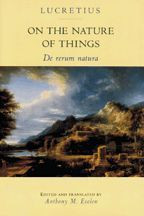
Reviews
What a tale it is!... [Esolen's] notes are full of fascinating and comment and helpful information... These notes, a thoughtful introduction, and above all a winning translation that captures the charms of Tasso's verse should give Tasso the wide audience in the English-speaking world that he has so far never had, but richly deserves.
This is the best way to read [Tasso] at the moment. Do it.
Now English readers have available to them Anthony Esolen's readable and accurate verse translation of Jerusalem Delivered. Esolen copes admirably with Tasso's octave stanza... It is not only beauty that Jerusalem Delivered still holds for us. In our time, when the future of the Holy City is contested once again, and sectarian conflicts are on the rise, and a Tridentine spirit, a fear of internal dissent, has returned to the Roman church, Tasso's magniloquent epic still has something to say.
A solid verse translation... Esolen observes the basic shape, rhythm, and rhetorical movement of the original ottava rima but never sacrifices poetry or meaning to rigid form. The result is both highly readable and truer to the spirit of Tasso than [Edward] Fairfax's rendition... An important contribution.
[A] much-needed new translation... No one will fail to admire the careful enormity of the undertaking.
This new translation of Gerusalemme liberata is a very fine, highly readable version of Tasso's epic about the First Crusade. The Gerusalemme is an acknowledged masterpiece of world literature and a culmination of Italian Renaissance poetry. It is good to have a modern, affordable edition of Tasso in print again, in a fast-flowing English verse that is infinitely more accessible to the ordinary reader than the Elizabethan rendition of Edward Fairfax... Tasso's work is charged with the fiery passion of youth. Esolen's translation captures this fire... A very useful feature of Esolen's edition, besides the notes and index, is a 'Cast of Characters' at the end, where each personage is identified, with words and actions noted for each canto.
Until now, the rollicking story of the heroes, villains, witches and lovers was available in only one modern English translation. Anthony M. Esolen has corrected this shortage in masterful style and his translation restores not only the epic grandeur of the original but also its excitement.
[Esolen] executes verse with art that it rarely intrudes upon the reader's consciousness, and then only to invoke admiration at the accomplishment of both the poet-scholars involved in telling the tale... This edition is eminently satisfying. Because Esolen takes such care to make the text accessible, he offers an excellent introduction to Tasso for new generations of readers, and he succeeds in awakening an interest in the original Italian, as well as in all of Tasso's works, with this translation.
We are fortunate to have Anthony Esolen's new verse Englishing of Torquato Tasso's masterpiece... Thanks to Esolen we now have an English Tasso worthy of use in our classrooms without the sort of fussy apologies that can undermine the experience we are trying to provide our students. In translating the Liberata Esolen has undertaken a daunting challenge and met it handsomely.
Jerusalem Delivered offers a thorough introduction tackling T.'s relationship to Ariosto, his struggle with the problems of truth, authority, and religion, and notes on the characters.
Esolen's translation of Tasso is a genuine intellectual and poetic achievement. The accompanying scholarly apparatus makes this the most valuable edition of Tasso available. Esolen has thought through with care what readers need to make their way through the immensity of the poem.
Esolen wittily calls Tasso 'a kind of Caravaggio of poetry,' and his own fluid translation of Jerusalem Delivered brings alive this ars poetica from the opening of Tasso's epic... Though not a child and not reluctant, I was up well past midnight several nights in a row, feverishly reading Esolen's wonderful translation, swept along by Tasso's stories and Esolen's accomplished and fast-moving verse.
Book Details
Acknowledgments
Note on the Translation
Introduction
Jerusalem Delivered
Chapter 1. Canto One
Chapter 2. Canto Two
Chapter 3. Canto Three
Chapter 4. Canto Four
Chapter 5. Canto Five
Chapter 6. Canto Six
Chapte
Acknowledgments
Note on the Translation
Introduction
Jerusalem Delivered
Chapter 1. Canto One
Chapter 2. Canto Two
Chapter 3. Canto Three
Chapter 4. Canto Four
Chapter 5. Canto Five
Chapter 6. Canto Six
Chapter 7. Canto Seven
Chapter 8. Canto Eight
Chapter 9. Canto Nine
Chapter 10. Canto Ten
Chapter 11. Canto Eleven
Chapter 12. Canto Twelve
Chapter 13. Canto Thirteen
Chapter 14. Canto Fourteen
Chapter 15. Canto Fifteen
Chapter 16. Canto Sixteen
Chapter 17. Canto Seventeen
Chapter 18. Canto Eighteen
Chapter 19. Canto Nineteen
Chapter 20. Canto Twenty
Allegory of the Poem
Cast of Characters
Notes
Bibliographical Essay
Index






